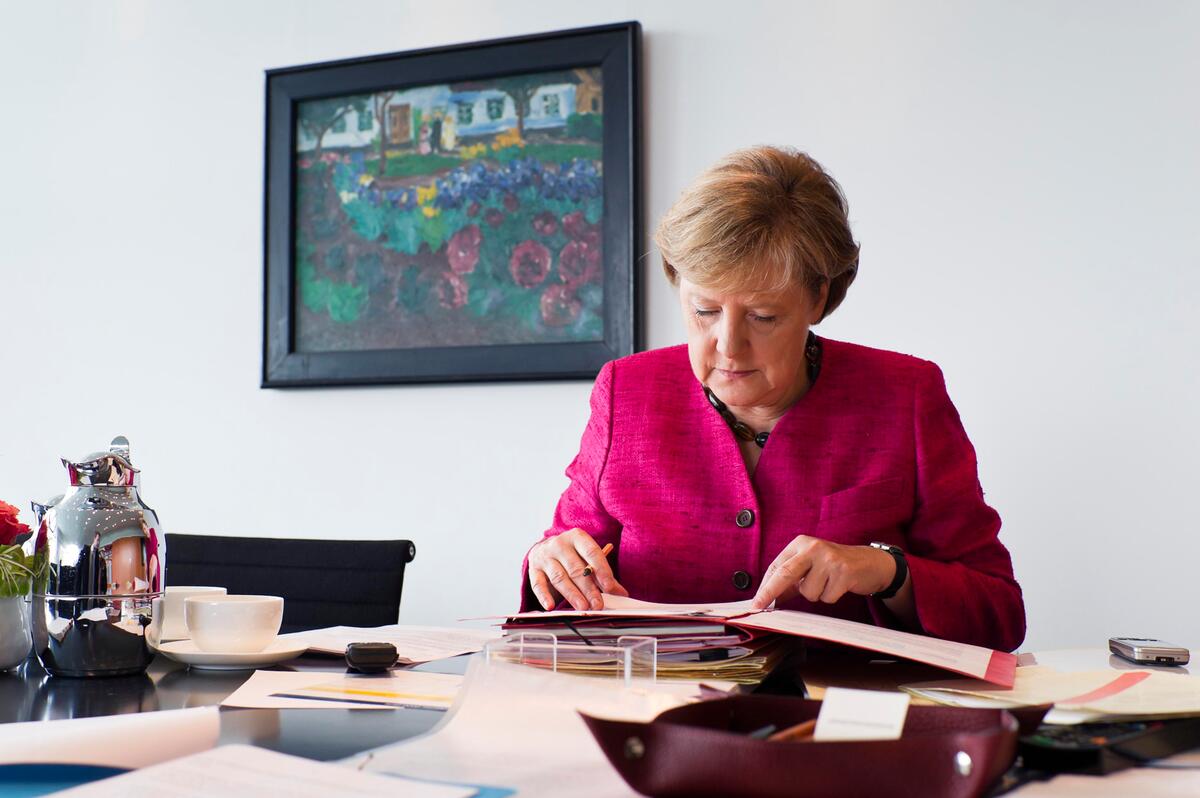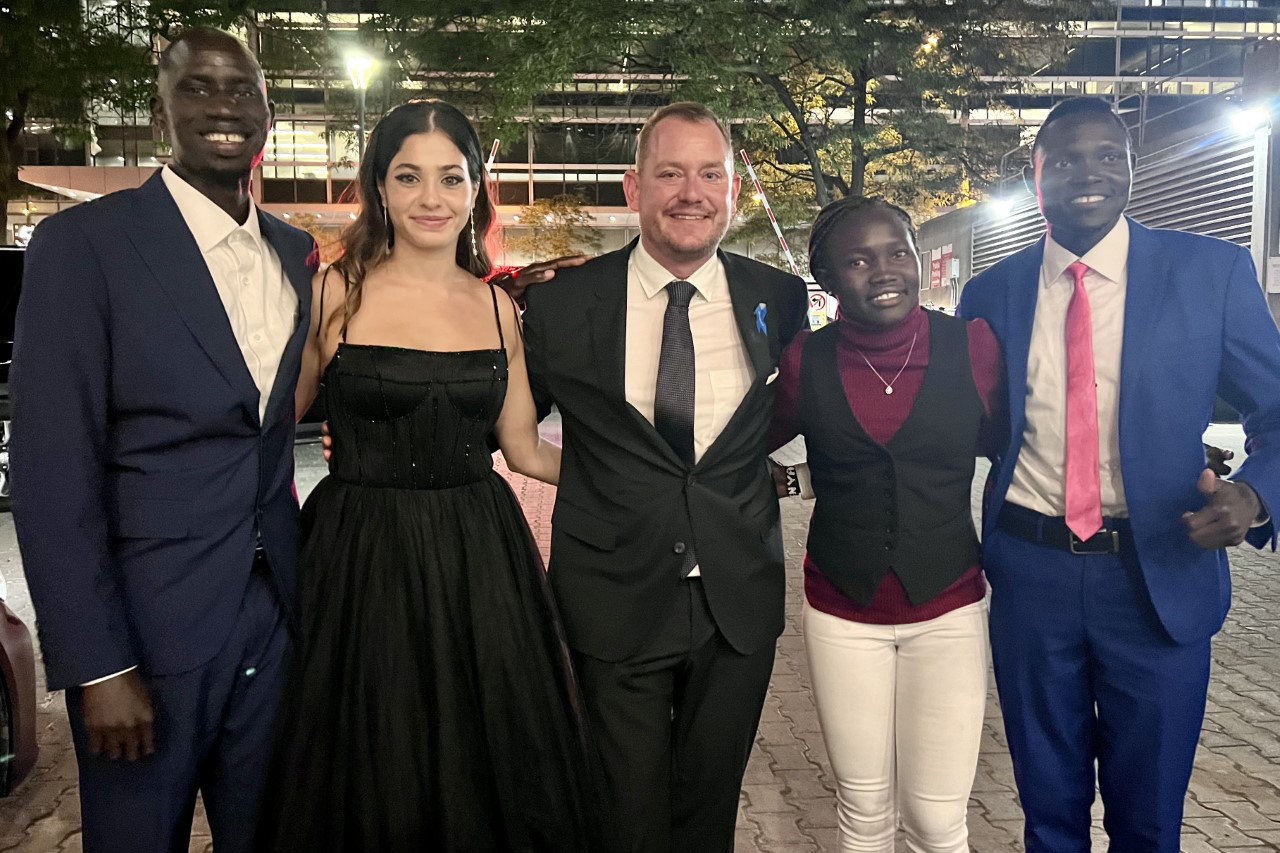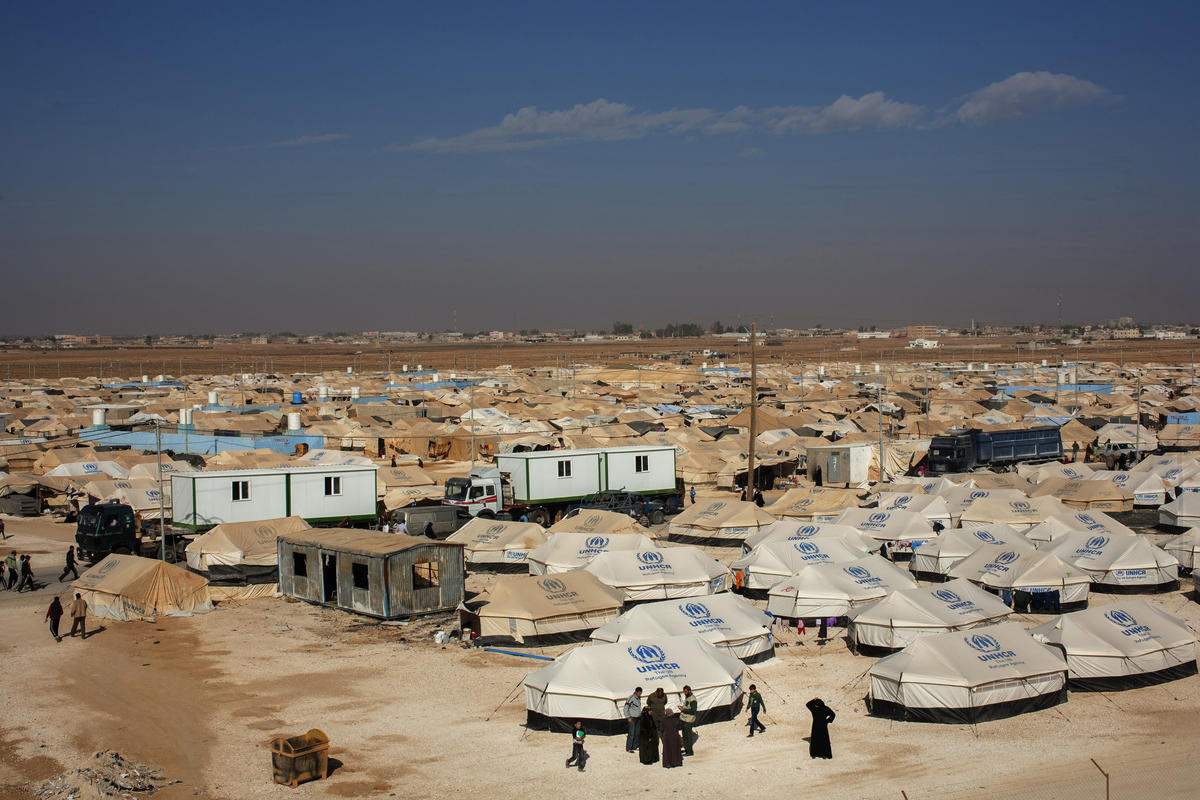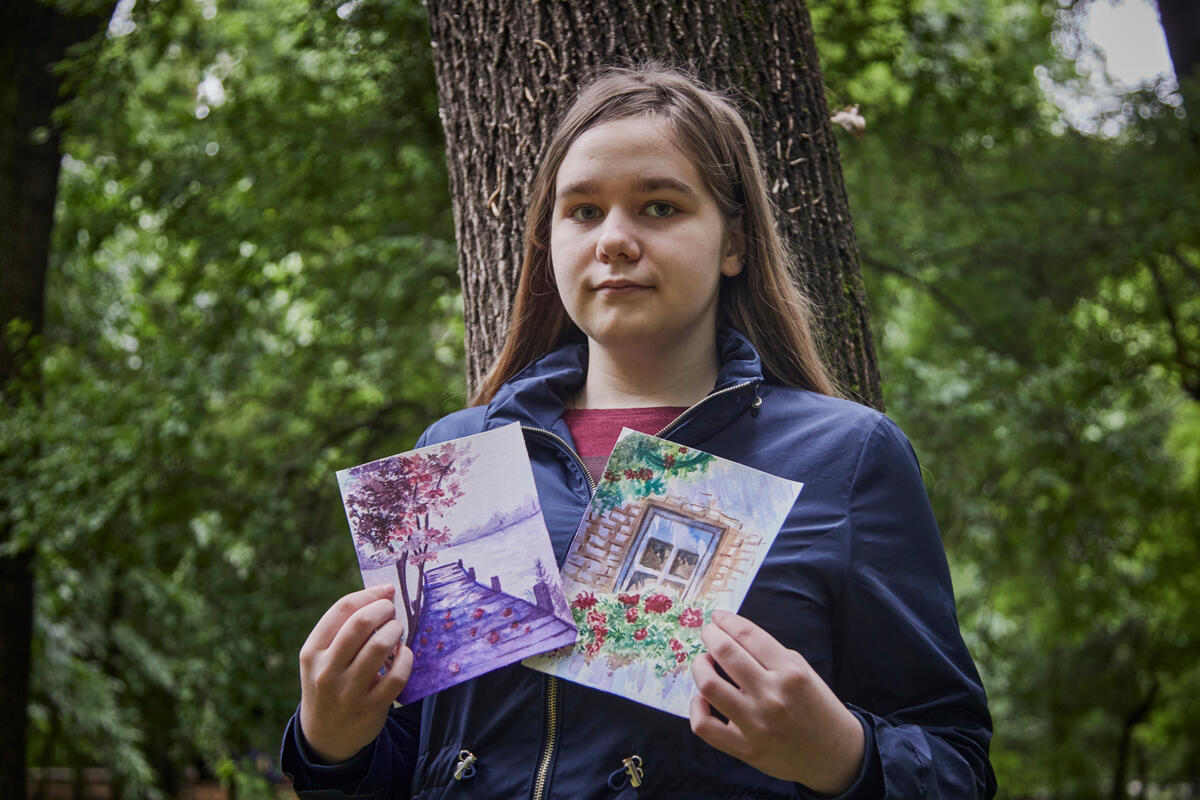Life imitates art: Syrian refugees stage Greek tragedy in Jordan
Life imitates art: Syrian refugees stage Greek tragedy in Jordan

AMMAN, Jordan, January 6 (UNHCR) - Syrian director Omar Abu Saada has turned to a Greek tragedy written more than 2,400 years ago to tell of the female suffering in his blighted homeland.
His staging in Arabic of "The Trojan Women" by Euripides recently played to an enthusiastic audience at the National Centre for Culture and Arts in the Jordanian capital of Amman. The warm reception for his minimalist production may well boost plans to make a film version.
The play's anti-war theme clearly resonated with its cast of 24 Syrian refugee women, who wove their personal stories of the Syrian conflict into the production. Euripides focused his play of 415 B.C. on the horrific aftermath of the Trojan War from the perspective of the women of Troy, the ruins of which lie in modern Turkey.
The immediacy and relevance of the themes which Euripides touched upon, including the effects of war on women, the role of women and the importance placed on honour and dignity, were brought home when the actors recited from letters they had written about their own experiences in Syria and of escaping the war, which has forced millions of people into exile in Jordan and elsewhere in the region.
Reem Shariff, an engineering student, compared Troy to her native Damascus, in its beauty and resilience. In a poignant performance, the 22-year-old identified with a line from the Euripides original in which Hecuba, wife of Troy's King Priam, says, "I will leave my fatherland, my city is being torched."
Shariff, like all the cast, is a refugee. She left her home and studies in Damascus and sought shelter in Jordan a year ago as the conflict escalated.
The young woman, who dreams of going home, said the play tells a very sad story. "What happened in the past is happening now. In the play, I tell my story of when I travelled from Syria to Jordan and how difficult it was. I have learned so much from this experience."
Director Saada, who has worked with Palestinian refugees before, said most of the actors in "The Trojan Women" had no experience of theatre. "Most of them had not even been to the theatre before this project, so they have a very different approach to art," he noted.
"We started to make links between the actors' stories and the original stories in the text and used that in the performance. We didn't put as much action in the play because the women were more interested in telling their stories, and that's where the action lies - in the storytelling," he stressed.

American actor Hal Scardino, one of the producers, added that the project was "very personal to these women now, because they are telling their stories from Syria through this play." The performances were revelatory: "I know a lot of Syrian refugees in Jordan, but not many of them open up, so it was incredibly powerful to hear personal experiences of their journeys," said Estee Ward, an audience member.
The original idea for the adaptation came from British writer Charlotte Eagar. "I went to Bosnia in 1992 and I worked there a lot with refugees," the award-winning former foreign correspondent said. "Then I heard 'Trojan Women' on the BBC World Service and I never forgot that. It's just the ultimate anti-war play."
She explained that the first plan was to make a film version. "The play was born out of the film. We wanted to work with Syrian refugees and thought the play could be theirs after we've gone," added Eagar of the privately funded production.
All of the actors were paid a small salary and have been offered the opportunity to feature in the film, which is expected to start production in Jordan later this year. Scardino said there were also plans for the women in the cast to continue meeting once a week to do similar workshops in which they tell their stories on stage. He said this would "keep the momentum going."
The production has been a moving journey for audience and participants alike. Following her performance, Shariff described her emotions. "I feel so happy I could cry. Many of the actors cried after the performance," she said. "It was so wonderful."
By Haben Habteslasie in Amman, Jordan









